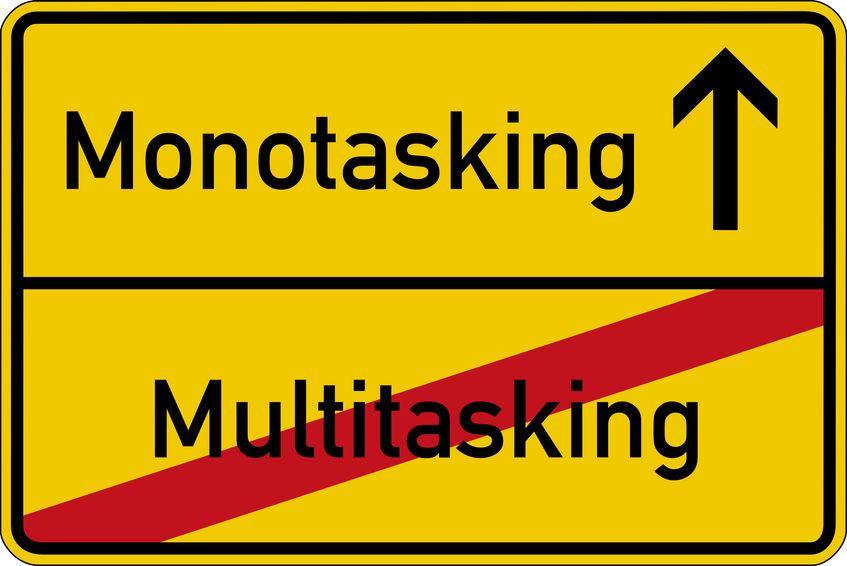In episode 21 of the That Solo Life podcast, “Slow Down! Be a Better PR Pro by Monotasking,” we talked about how in order to be a true rock star in your work, you’d better be a sensational multitasker. Except, it isn’t true. Multitasking isn’t better, and science proves it. Let’s dig a little deeper here on the blog.
Before you went solo, how many job listings included requirements like this? “Highly organized multitasker who works well in a fast-paced environment.” It’s a phrase we’re so used to seeing it barely registers.
The first mention of the word “multitask” can be traced back to 1966 and, guess what? It’s a term referring to how a computer operates:
“Multi-tasking is defined as the use of a single CPU for the simultaneous processing of two or more jobs.”
A computer. Even the computer was only expected to complete two jobs at once. You’re smart. I’m smart. But we aren’t machines and we shouldn’t treat our brains like CPUs.
Being known as a good multitasker has been a badge of honor, especially with the onset of technology and doing more while understaffed. As a reforming multitasker, I’ll confess, it felt great to receive praise for multitasking. Working this way felt more productive until it didn’t.
Eventually, multitasking is more difficult to maintain. That’s because it’s not how our brains were meant to perform.
Michael Harris has written on the topic of technology and its effect on us socially. He states, “When we think we're multitasking we're actually multiswitching. That is what the brain is very good at doing – quickly diverting its attention from one place to the next. We think we're being productive. We are, indeed, being busy. But in reality, we're simply giving ourselves extra work.”
Multitasking also contributes to cognitive decline, as described in this Forbes.com piece by Travis Bradberry:
“Researchers at the University of Sussex in the UK compared the amount of time people spend on multiple devices (such as texting while watching TV) to MRI scans of their brains. They found that high multitaskers had less brain density in the anterior cingulate cortex, a region responsible for empathy as well as cognitive and emotional control.”
If that isn’t enough reason to stop multi-tasking, it also causes an increase in mistakes and slows you down because your brain needs time to recover between each change in activity.
How can you break your multitasking habit?
Focus
The obvious answer is to focus on one task at a time. Use an online Pomodoro timer to help you. Block out time on your calendar for projects and breaks, scheduling each item in the same way as an appointment or meeting.
Keep Track
Similarly, use online project management tools to help create order in your work life.
Let It Go
“Morning Pages,” “Morning Brain Dump,” whatever you want to call it, start your day by writing down everything that is on your mind at that moment. You feel lighter already, don’t you?
Manage Expectations
Clients may be accustomed to your immediate replies to emails and texts. That is fine when the project warrants, but for correspondence that is not time-sensitive, create set times throughout the day when your only focus is checking and replying to email. Set an out of office notification stating that you check your email at 10:00 a.m. and 2:00 p.m. (or whatever set-up works for you) each day and provide a way to reach you if the need is immediate.
Try it for a day, a few days, a week. If you are a hard-core multitasker, this change will be a challenge but it will be so worthwhile in the end.
This post was written by Michelle Kane, Solo PR Pro Premium Member, Head Honcho of Voice Matters, LLC and co-host of That Solo Life podcast. Michelle has over 20 years' experience in communications management, writing, public relations, administration, and broadcasting.
Image Credit: Harry Huber


0 Comments